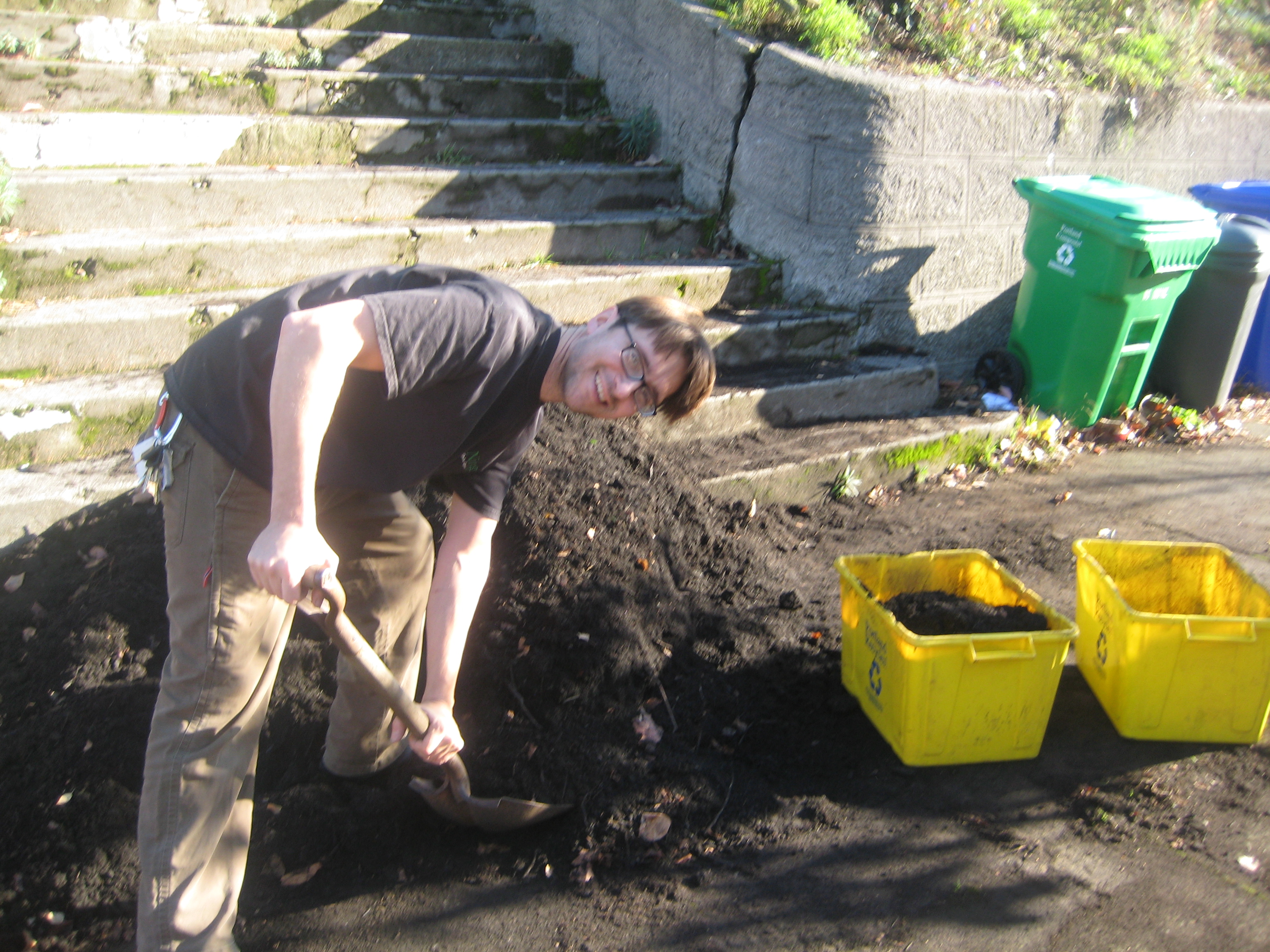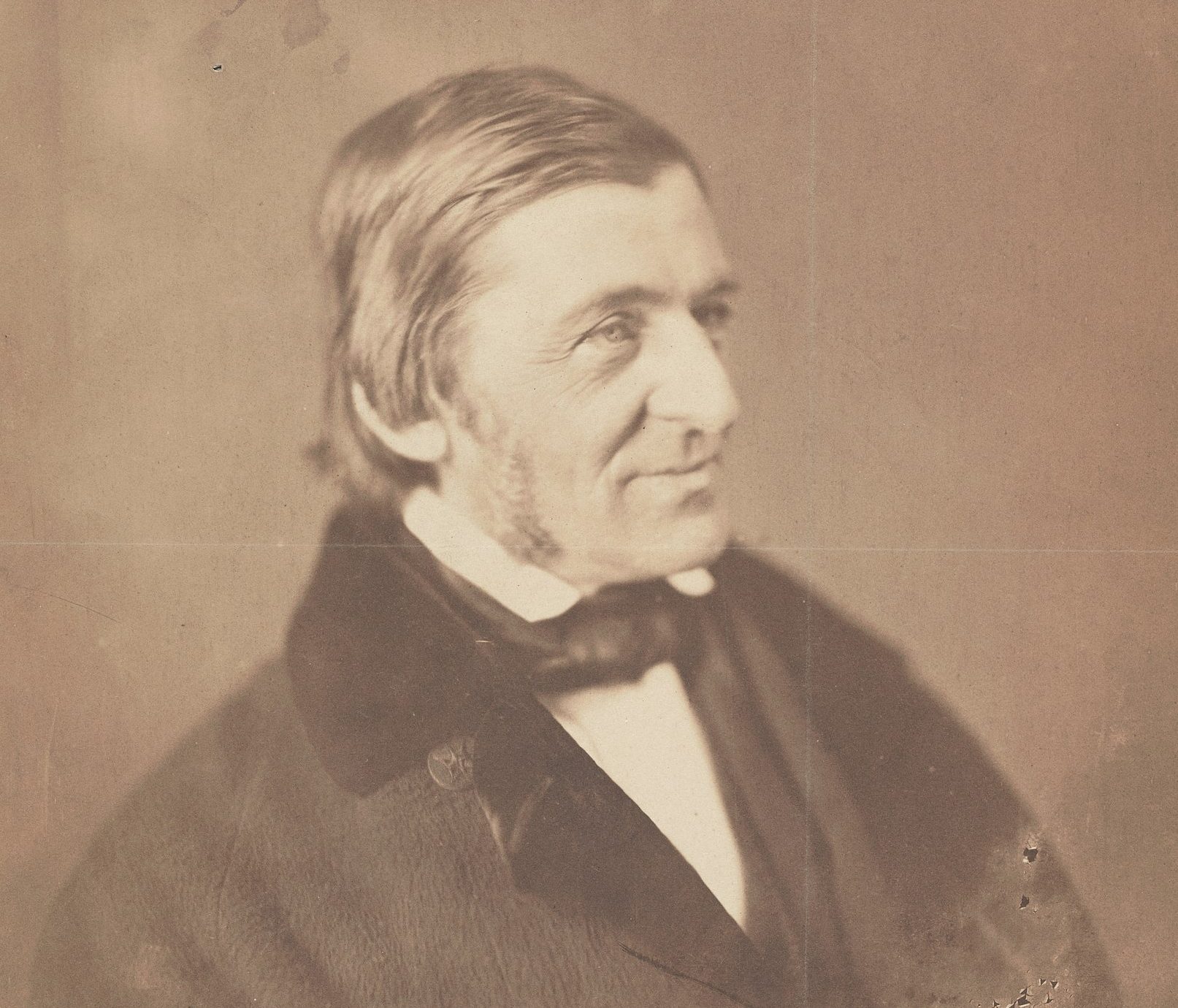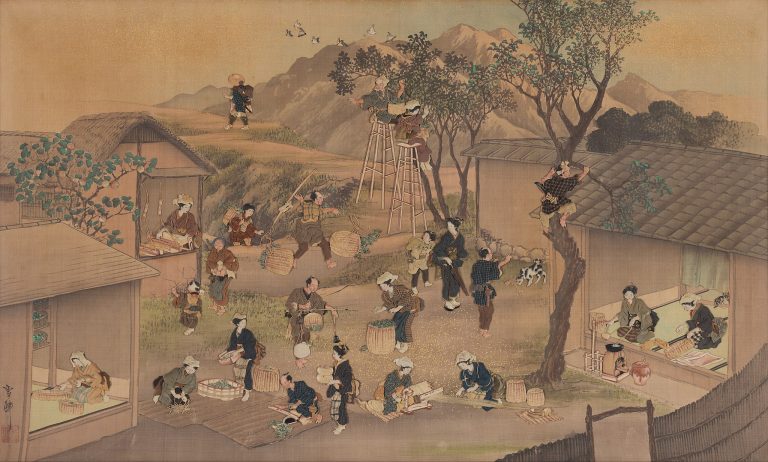Spirituality may mean many things to many people, but generally, one who is on a spiritual path is seeking a more noble or meaningful existence; wishing to be a better person and have a closer connection with the creative forces of the universe.
Studies have shown that spiritual practices like meditation, singing, study and prayer can have many physical health benefits, but the reverse is also true. Physical activity, especially working outdoors, can also have a positive effect on one’s spiritual growth.
Sense of purpose and accomplishment
By taking the “out” out of “physical workout,” the activity becomes meaningful. Then take that “out” and combine it with “door,” and the experience may become spiritual.
Outdoor physical work, be it maintaining a garden, shoveling snow, building, painting, washing windows or chopping fire-wood, comes with concrete results that generate feelings of satisfaction over a job well done. Working the body engages the whole being, and makes for a more rewarding experience.
People feel better about themselves when they know that they have earned what they have. Stimulating and challenging work is important for one’s sense of self-worth and dignity. Being engaged in useful activity feeds the soul, and gives one a sense of purpose. Tasks that require considerable effort or exertion may call for faith and perseverance to complete, solidifying these important characteristics for one’s spiritual growth.
Outdoors adds value
Success
You are now signed up for our newsletter
Success
Check your email to complete sign up
Indoors, we are often surrounded by thousands of inanimate objects of our own choosing, leading to self absorption and lack of focus. Outdoors, we enter a fresh environment that is very much alive. It gives us a sense of place in the vast universe, and we are able to perceive and accept the wonder of the ever-changing world around us more readily.
Researchers have found that “wonder” is an important part of spirituality, as it inspires awe and reflection. In his own experience, Dr. Anthony T. DeBenedet finds that “wonder makes you feel smaller. Not insignificant but smaller, in the sense that you are a piece of a greater whole. In that way, spirituality and wonder have similar functions. Meditating, encountering the divine or experiencing the miraculous can often make you feel smaller in that wonderful way. You realize that you’re part of a greater symphony of things. You have a greater place and purpose in the world.”
Nature’s spiritual value is also recognized by Edward O. Wilson, Harvard naturalist and Pulitzer Prize winner, who believes that Nature is essential to good health. He holds that we have an affinity for nature, or biophilia (love of living things) because we are a part of nature; and that we are connected with it and restored by it.
Cleansing effect of physical labor
Like other strenuous exercise, physical labor helps cleanse the body and clear the mind. Working up a sweat helps release toxins through the skin; and hard work also strengthens the heart, liver, and other internal organs to better enable them to flush out toxins. An added benefit is an increased desire for hydration, which will further flush the system.
Most people have experienced the calming effect exercise has on the stressed mind. Studies show that aerobic activity increases blood flow to the frontal cortex, where important mental activities take place. Exercise not only increases neural activity, but also stimulates the growth of new neurons, aiding in memory and learning. Strenuous exercise was shown to have a significant regulating effect on negative emotions.

Work builds fortitude
Strengthening the mind and body through physical labor builds stamina and solidifies moral character. A person who knows the value of hard work is more willing to put forth the effort for spiritual growth. A demanding job requires strength of character and discipline. The integrity, humility and determination born of hard labor can serve as a foundation for spiritual growth.
Too little useful physical activity, on the other hand, can invite one to become lax, and even pursue less virtuous ways to pass the time. As the proverb goes, “The devil finds work for idle hands.” Keeping the mind and body engaged in honest labor helps us resist temptation to stray from our spiritual path.
Likewise, when work requires little effort, one feels equally little satisfaction. Confidence, self reliance, and dignity all suffer when one takes the easy way. Frank Sonnenberg, author of Listen to Your Conscience, writes, “…when any part of the human body hasn’t exercised properly, it will atrophy. The same is true of the spirit”
God’s Garden
The kiss of the sun for pardon,
The song of the birds for mirth,
One is nearer God’s Heart in a garden
Than anywhere else on Earth.
Dorothy Frances Gurney, lines 13-16 of her poem God’s Garden
Every gardener knows that the delights of observing and working with nature cannot be replaced by any material rewards. A garden provides one with the sacred work of nurturing life, as well as the humbling environment of a magical world. When we work wholeheartedly in a garden, we become one with nature and abandon our cumbersome sense of self.
Clare Cooper Marcus, MA, MCP, professor emerita from the University of California at Berkeley, and one of the founders of the field of environmental psychology, believes that being in nature “puts the mind in a state similar to meditation.” Because we stop worrying about our personal concerns, our senses are awakened and we experience life in the moment, which Marcus finds to be “very effective at reducing stress.”
Ralph Waldo Emerson’s views on hard work

Ralph Waldo Emerson, a spiritual writer in the 1800s, was a big proponent of hard work. He wrote much about self-reliance and independence of thought, influencing other writers like Walt Whitman and Henry David Thoreau, who lived on Emerson’s wooded property on Walden Pond for two years in a small cabin he built himself.
“The foundations of a person are not in matter but in spirit.”
Ralph Waldo Emerson, American poet
As a leading American transcendentalist, Emerson believed in a fundamental continuity between man, nature, and the divine. His thinking followed the ancient principles of I Ching, or The Book of Changes, in many ways, as he believed that everything was in a constant flow of change, and that there was balance in the opposites.
His Law of Compensation states that we always get what we deserve, according to the amount and quality of effort we put into it, again similar to the ancient Chinese philosophy of “good is rewarded and evil is punished.”
Embarking on a spiritual path
Spirituality can help one lead a more fulfilling life. It can deepen your understanding of your place in the world, fill your heart with gratitude and compassion, and open up channels to connect with others. Physical labor can play an important role in meeting your spiritual goals.
There are countless ways we can work the body to improve the spirit. Even if you don’t have a garden or property of your own to work on, if you have the ability, you can help others who are less able. Joyfully mowing one neighbor’s lawn, painting another’s fence, and washing a relative’s windows will not only bring you a strong sense of satisfaction, but also spread goodwill, strengthen social connections and improve your collective environment.













